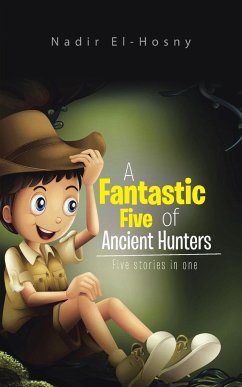
Fantastic Fiction
3-Stella Fregelius, Smith and the Pharaohs & Only a Dream
Versandkostenfrei!
Versandfertig in 1-2 Wochen
22,99 €
inkl. MwSt.

PAYBACK Punkte
11 °P sammeln!
The third volume of a special Leonaur collection of fantastic stories H. Rider Haggard's ability to give his audience a good tale well told is not in question. He was one of the most popular authors of the late nineteenth and early twentieth centuries and some of his novels are well known-at least by title-to almost everyone. His story of Ayesha-'she who must be obeyed'- has been filmed and in its day was one of the best selling novels ever. King Solomon's Mines, introduced the public to the little, wiry, white hunter Allan Quatermain. It too became instantly popular and the character went on ...
The third volume of a special Leonaur collection of fantastic stories H. Rider Haggard's ability to give his audience a good tale well told is not in question. He was one of the most popular authors of the late nineteenth and early twentieth centuries and some of his novels are well known-at least by title-to almost everyone. His story of Ayesha-'she who must be obeyed'- has been filmed and in its day was one of the best selling novels ever. King Solomon's Mines, introduced the public to the little, wiry, white hunter Allan Quatermain. It too became instantly popular and the character went on to feature in a host of different adventures on the dark continent as well as on the silver screen several times. Leonaur have gathered together several Haggard collections for modern readers to enjoy. There is, of course, the two volume Ayesha quartet, but also the Quatermain series, the African Adventures series, the Historical Adventure series and the series of adventures set in the Ancient World. Irrespective of his central theme Haggard was never one to shy away from elements of the supernatural or fantastical, witches, ghosts, familiar spirits, god gorillas and the like appear unquestioned in even the most realistic of his stories. So it is less than surprising that Haggard also produced a body of work that positions itself uncompromisingly in the realms of the incredible. This special four volume collection from Leonaur gathers together those stories-each book featuring one novel and one or more shorter works-in a satisfying four volume set for his many aficionados to collect and relish. Available in soft cover and hard back with dust jacket. In volume three the first story is the novel, Stella Fregelius-a fantastic tale of telepathy, psychic powers and supernatural communication with the dead. It is accompanied here by Smith and the Pharaoh's and Only a Dream. Smith is an archaeologist who finds himself locked inside the Cairo Museum for the night. There he is placed on trial for grave robbing by the ancient Egyptians in an eerie tale that is also not without its elements of humour. Only a Dream is a short 'chiller,' almost a homage to Poe, in which a prospective husband is visited by the spirit of his first wife on the eve of his marriage to the second.














